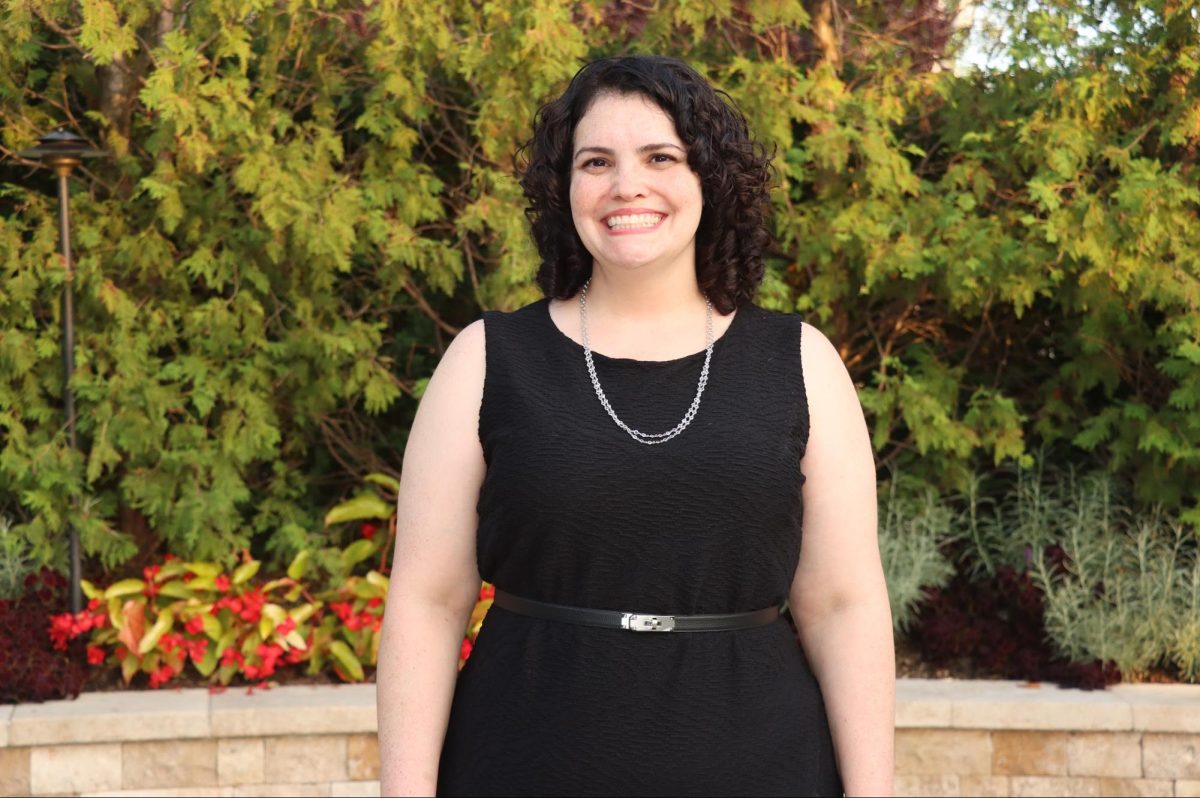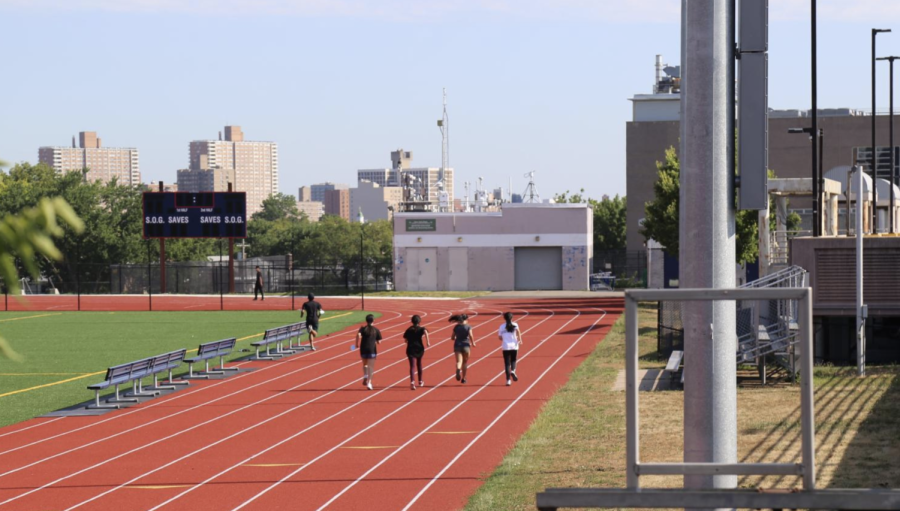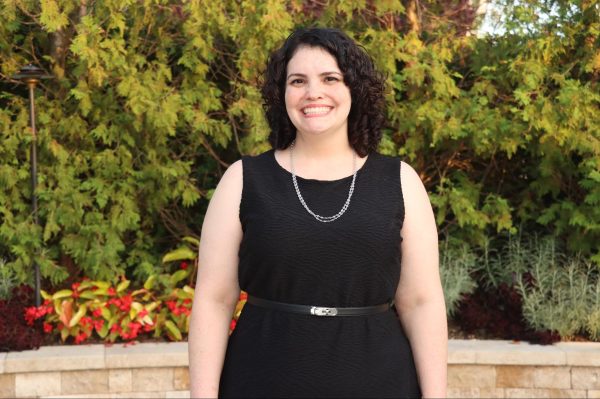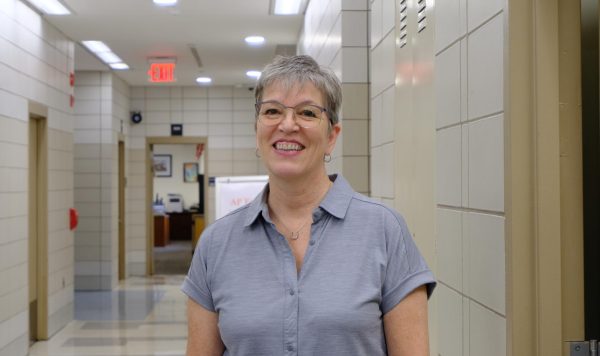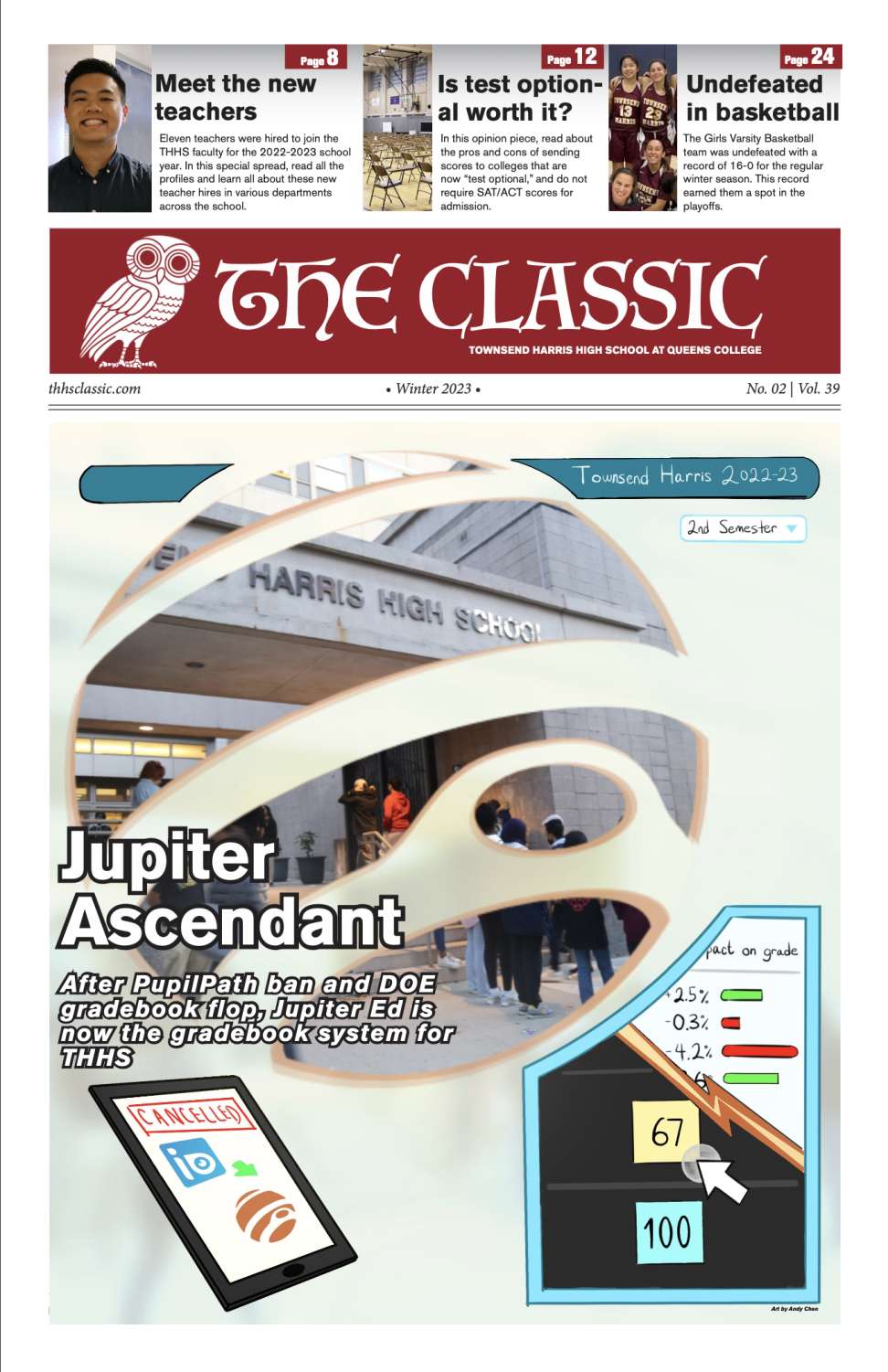With the QC track fully available for the first time in years, it’s “freshman gym” for everyone

After the end of a long hiatus incited by the Queens College track renovation, Townsend Harris has brought back one of its most infamous traditions: the graded mile run. With school back to being fully in person and the renovated track now available for Physical Education classes, “freshman gym” (and more) is back in full effect.
The graded mile is often seen as a “rite of passage” for freshmen. This year, however, nearly every student is participating after a long leeway period spurred by the pandemic and track renovation. For current sophomores and juniors, it is their first time experiencing such an infamous THHS tradition. The grading rubric is split into two categories: boys and girls. The time needed for a boy to get a grade of 100% is 6:29 or less and for girls it is 7:29 or less.
Physical Education and Health teacher Matthew Lemanczyk said that the new track is a “fantastic resource for students to maximize their cardiovascular health as well as a good resource for faculty and teachers to use.”
After being asked about the benefits they have found in running, Mr. Lemanczyk said that there are a lot of benefits, including “cardiorespiratory endurance,” “strengthening your bones,” and improved mental health. Physical Education teacher Gabriela Pedreros said that running is a great opportunity “to challenge ourselves, [to] set goals, and [to] see how we can improve.” Similarly, PE teacher Diane Ramirez said that running is “really beneficial for your heart, for your breathing.” Ms. Ramirez also suggested that “being a decent runner will make” the job of going up and down the school stairs much easier.
The grading policy for the mile runs have remained the same since years before the pandemic began, and some believe that it is time for a change.
“The mile times [are] really low, especially for people who don’t run often,” said junior Wiktoria Sadowska. Similarly, freshman Natalie Tama said the grading policy is unfair because students who are not physically active outside of Physical Education classes are “bound to get a bad grade.”
One proposed solution to this is to raise the time limit for a perfect score. Senior Joshua Arany said that the grading policy should be changed to “100% for anyone who runs sub ten minutes,” and junior Aiden Fontaboa said that he believes “an eight minute mile is decent,” and that it should be the new 100%.
Senior Christian Smith suggested that the mile should be graded based on effort. “Teachers should be watching the students and it should be graded off of the actual effort itself,” he said.
Some teachers, like Mr. Lemanczyk, “use the rubric as an initial guide and then once a baseline has been established, we adjust according to the individual’s abilities.” He said that “as the student improves, so does their grade.” Ms. Pedreros said she does a similar thing: “[I] try to abide by the rubric at least for the first run so students know more or less where they fall, but then [I] do it based on growth.”
Ms. Ramirez, however, said that she starts off going by the rubric but her classes “take the time for each lap” if students improve after each lap, she gives them “extra credit points per lap, so a person with a 55 could potentially end up with a 63.”
When it begins to get cold outside, THHS takes a break from graded mile runs until it becomes warm enough to continue. Because of this, sophomore Aisha Rama said that teachers “could’ve started with just [telling students to] walk a mile to get us moving for a mile, and then run in March.” Sophomore Emily Carson said something similar: “I feel like they should postpone this (graded runs) until the end of the year so that you have all that time to train and be physically active and then you have time to prepare for those graded runs.”
A return to strong, and sometimes painful, student opinions about what goes on at the track during PE is yet another sign that the unprecedented changes of the pandemic are receding and THHS is returning to what it used to be.
Now that the year is coming to a close and PE classes are no longer hosting graded-mile runs, some PE teachers reflected on how their students did. Mr. Lemanczyk said he was “happy and proud about [his students’] progress,” and thinks that his students “should be happy and proud about their own progress.”
“In the fall, it was rough,” said Ms. Ramirez. But the interval running and plyometrics her class did in between runs have really “improved a lot of [student’s] times.”
Your donation will support the student journalists of The Classic. Your contribution will allow us to purchase equipment, support our extracurricular events, celebrate our staff, print the paper periodically, and cover our annual website hosting costs.





